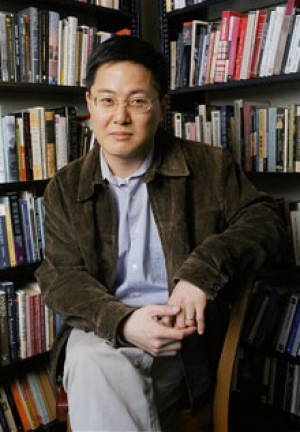
By
An essay by Professor of English Min Hyoung Song about growing up in Detroit in the 1970s and ‘80s is one of 41 stories that give an intimate glimpse into Michigan’s Asian American communities in the new book Asian Americans in Michigan: Voices from the Midwest.
The volume explores the historical and demographic origins of Michigan’s Asian American communities along with their culture, heritage and experiences. The contributors represent a range of voices from immigrants to fourth-generation Americans of Asian heritage, and cover the spectrum of ancestries from East Asia to South Asia to Southeast Asia.
“When people think of Asian immigrants, the focus is on the coast,” said Song. “People don’t usually think of Michigan as a place with Asian Americans.”
Song describes his story, “A Genealogy of a Detroit Childhood,” as an anti-memoir. “I was trying to make sense of my childhood, but I realized I need to look at all the other stuff that happened in my community at the time to know how it shaped my own upbringing.”
Song came to the United States from Korea at age 5. His family’s uncle taught economics at the University of Detroit, so his family settled in the Motor City after he sponsored their immigration. Detroit was still suffering from the aftershocks of the race riots and start of the industrial factory flight that predated the Song family’s arrival.
Song’s dad got a job on the assembly line of an auto manufacturer. As he grew up, Song found himself wondering “Why are there no people here?” and “Why is there a sharp racial divide?”
By the 1980s, race relations were extremely tense, particularly against Japan, which was seen as the enemy of the American carmaker. The 1982 beating death of Vincent Chin, a Chinese American, by two white auto industry workers—and their subsequent light punishment—was a flashpoint for the Asian American community.
Song said he enjoyed experimenting with this type of writing, compared to writing exclusively for an academic audience. It allowed him to reflect on how much his growing up was affected by a history that he couldn’t know in full but that nevertheless profoundly shaped his experiences.
Song came to Boston College in 1998, his first job after earning his doctorate from Tufts University. He directs the University’s Asian American Studies program and is the author of the book Strange Future: Pessimism and the 1992 Los Angeles Riots and the award-winning book The Children of 1965: On Writing, and Not Writing, as an Asian American.



